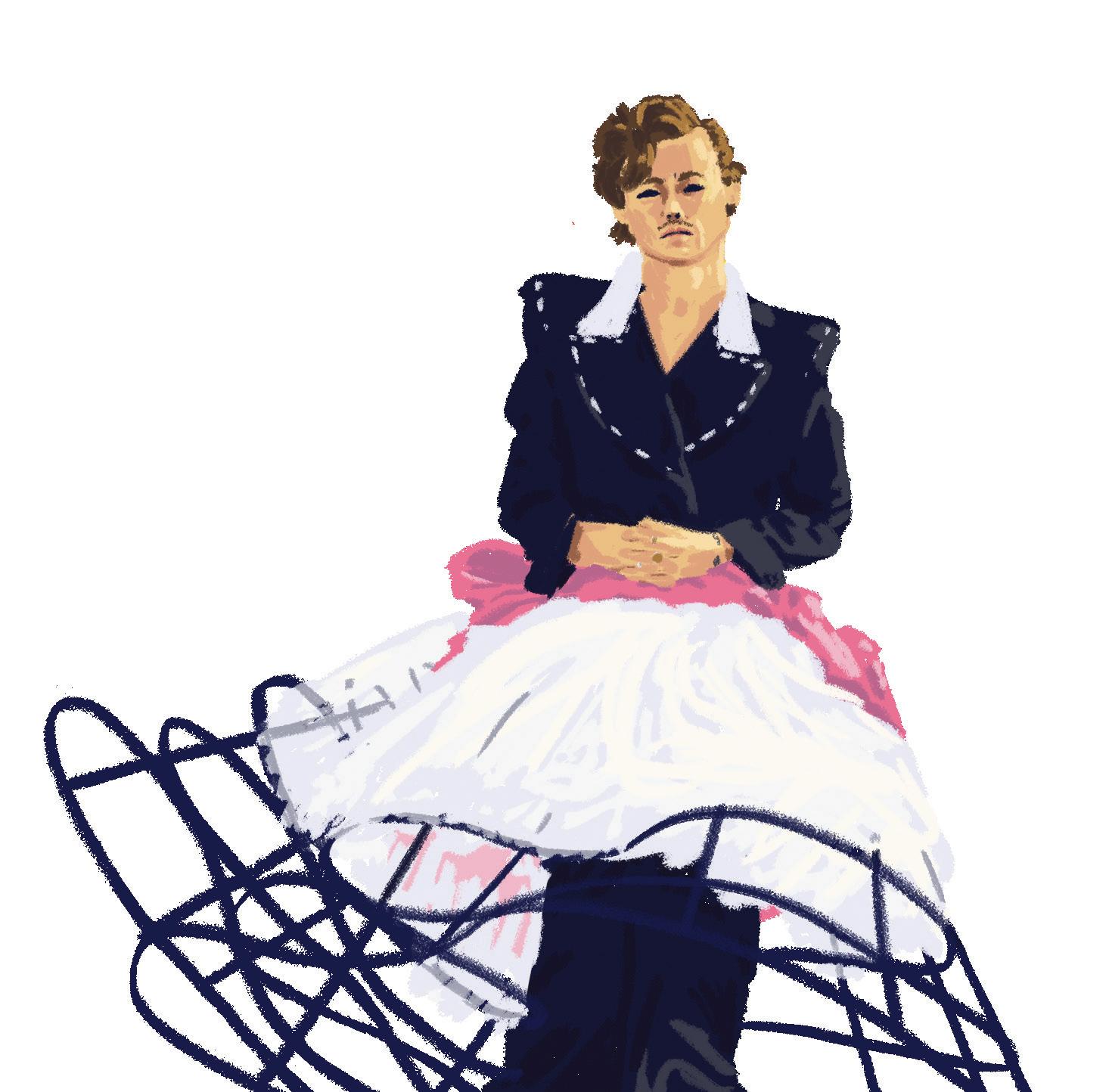Text by MICHELLE KIM and NAOMI BONEH Art by MICHELLE KIM
Mirror through
Minari
FILM LANGUAGES SUBJECT TO OUTDATED RULES
“W
HAT IS THIS PLACE?” “It’s our home.” A man helps his wife up to the doorway of their trailer home, reminding her of the new beginning they promised to pursue. In accented English, he promises his two young children that he’ll grow them a big garden, referring to his dreams of making a living for his family through farming. Portrayal of immigrants “Minari” follows a South Korean family’s immigration to Arkansas during the 1980s in the hopes of starting a new life, partially mirroring director Lee Isaac Chung’s own rural upbringing in the South.
Jacob (Steven Yeun) and Monica (Yeri journey of growth and overcoming their Han), their children David (Alan Kim) and hardships together. Anne (Noel Cho), and Monica’s mothThe film debuted at the Sundance er Soonja (Yuh-jung Youn) find greater Film Festival in January of last year and was importance in familial officially released in the bonds as they navigate United States on Feb. 12, the unpredictable nature The Golden Globes quickly garnering praise of cultivating farmland, thus fails to live up for its powerful depiction as well as cultural differof the significance of famences from their non- to the “global” part ily and the struggles of Asian neighbors. adjusting in an unfamiliar of its name. These cultural differcommunity. ences are emphasized in a scene where David declares that Soonja is Controversy over classification not a “real grandmother,” pointing out that In December, the Hollywood Foreign she does not bake cookies or act like the Press Association designated “Minari” as a elders he observes in his American commu- nominee for the Golden Globes’ Foreign nity. Jacob and Monica are oblivious to the Language Film category, sparking controway their children are taking up new cul- versy across several social media platforms tural roots, highlighting the grapple with as users questioned why a truly American cultural identity that many second-gener- story was not marked as such. ation immigrants experience. “Minari” was produced by an Amer“Minari” is the Korean word for wa- ican director and the American company ter celery, a leafy vegetable common in East Plan B, distributed by American entertainAsian dishes. As explained by Soon-Ja in the ment company A24, filmed in film, it is resilient and symbolizes growth; Oklahoma and cast predomlike a plant finding new roots inantly American actors. The and flourishing in unexpected only component distinguishplaces, the movie’s name is ing “Minari” as a non-Amerderived from the family’s ican film appears to be its Korean dialogue.

























